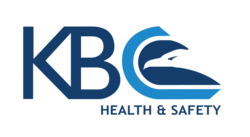Virtual training at De Beers Musina
| Virtual training at De Beers Musina_final | 34.5 KB | Download |
Virtual training is a highly interactive, live and synchronous instructor-led class. When conducting virtual training, one needs to be cognisant of who the target audience is. Being able to apply a multifaceted approach to the delivery of information is key to ensuring that the learning outcomes have been achieved.
COVID-19 has challenged many businesses, both big and small. Every organisation needs to adapt to innovative ways in these challenging times. One such challenge faced by De Beers Musina is the onboarding of its employees (employees include contractors as per the MHSA) from a training perspective. The training challenges include, but are not limited to, the following:
- Location of its operation: Musina (any one going to work at Venetia needs to self-quarantine and undergo COVID-19 testing as well as medicals)
- Limiting the number of employees going on-site
- Limited facilities due to social distancing
- Outsourced facilitator led training
- Undergoing mandatory training
In saying this, we have been approached by De Beers to assist with conducting virtual training for one of its mandatory A1 programmes. We engaged with our experienced facilitators to run these sessions. The A1 training programme’s core focus is continuous workplace risk assessment. This highly-structured programme requires learner engagement so that the learning outcomes can be achieved.
KBC’s experienced facilitators conducted the learning sessions remotely. These sessions were highly interactive, including constant engagement with learners through learner workbook activities, discussions, visual aids and assessments. At the end of the virtual learning sessions we achieved the outcomes of the programme. With our multilingual facilitators we were able to impart valuable lifesaving information to the delegates in attendance, no matter what the demographic composition.
We are pleased with the outcomes of the virtual training and look forward to host many more with our clients. Safety is our number one priority. We strive to achieve a ZERO HARM culture.
Ends

